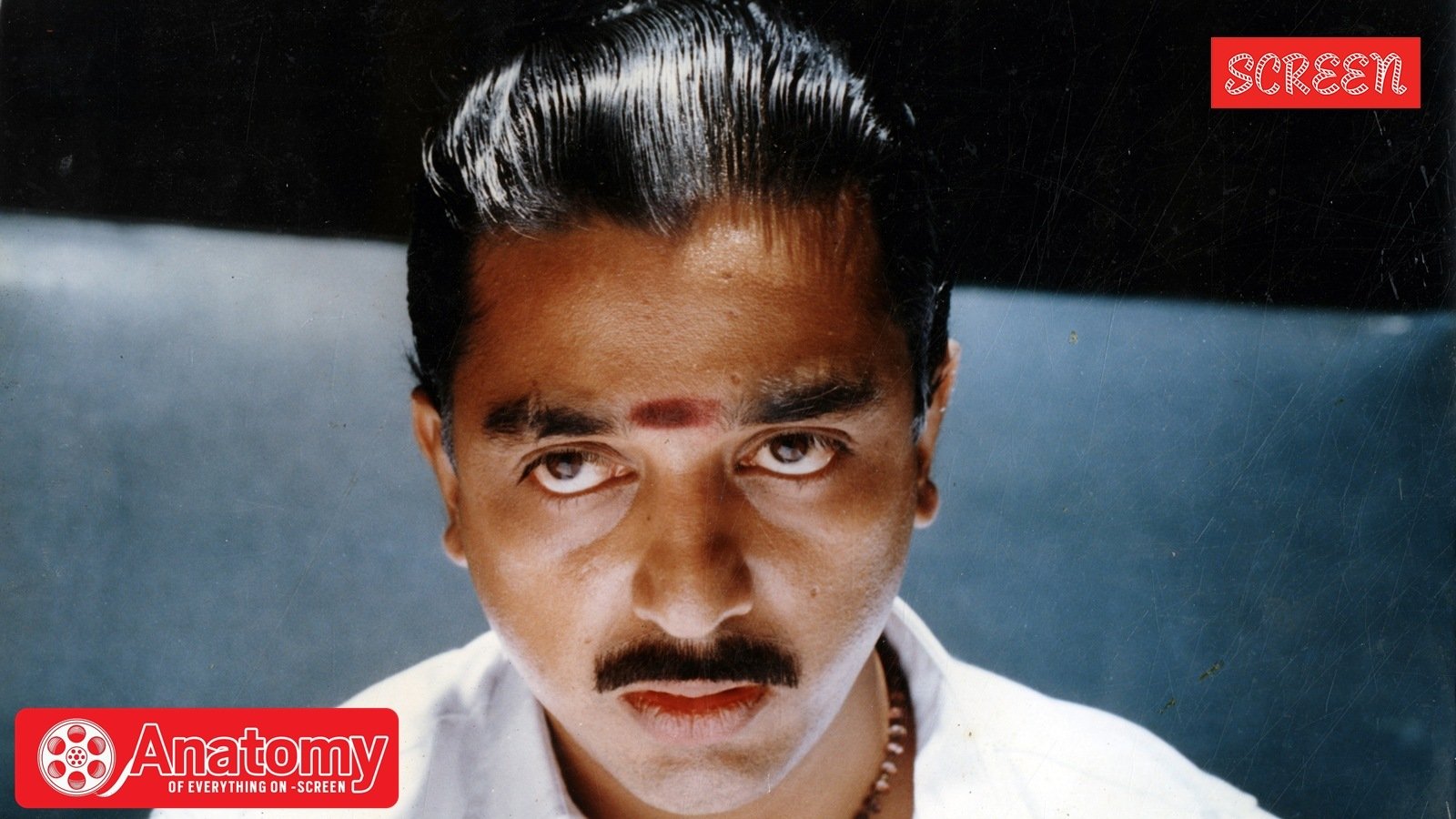
Ok, first things first. My intention is not to dismiss or disregard the impact and influence Nayakan (1987) has had, nor the contributions Mani Ratnam and Kamal Haasan have made to Indian cinema, both of which have inspired many to pursue filmmaking and acting. These are well-documented facts. However, the Nayakan effect on the masses has been so strong, unwavering even with time, that it almost (just almost; not necessarily exactly) feels like a bandwagon effect, where a critical evaluation of the film rarely occurs.
You’re free to conclude that I have a contrarian bias and move on. But Mani Ratnam himself told The Indian Express back in 1988, “Whenever I see a film, I view it critically.” Yet, I honestly don’t think Nayakan is a bad movie. In fact, it contains several commendable elements, some never-before-seen in Indian cinema. So, let’s keep aside the blind devotion to the crime drama, take a step back and ask: Is Nayakan truly “peak cinema”? Has it aged well? And where all did it falter? Now that Kamal Haasan and Mani Ratnam gear up for their first movie in 37 years, Thug Life, this is the right time.
For this, let’s work our way inward from the surface by analysing the film’s narrative and technical aspects. Undoubtedly one of the finest movie dialogues in Tamil cinema, and one that has repeatedly found its way into pop culture, is the question posed by Sakthivel “Velu” Nayakkar’s (Kamal Haasan) grandson to him at the end, “Neenga nallavara kettavara? (Are you a good person or a bad person?),” which shatters the old man. As Mani Ratnam once remarked, it “puts across the moral dilemma of the man in a nutshell”.
This is despite Velu’s lifelong adherence to his guiding motto, “Naalu peru saapida udhavumna, edhuvume thappille (If your actions help feed four people, then there’s nothing wrong with it).” Although the movie abstains from offering a direct narrative answer to this question, its very title, Nayakan, is a significant giveaway. Yes, one could argue that it’s a variation of his surname, Nayakkar (also written as Nayakar, Naikar, Nayaka, Naik, et al) — which also highlights his dominant caste background — but it literally translates to “Hero” in English.
Watch Nayakan full movie here:
True, its hero cannot be confined to the binaries of good or bad. However, considering the era in which the movie was made and Indian audiences’ long-standing obsession with on-screen male heroes, particularly when portrayed by beloved stars, naming a film that seemingly refuses to take a clear stance on its protagonist’s morality “Hero” was an avoidable move. Unless, of course, the intention was a kind of reverse psychology.
One of the biggest shortcomings of Nayakan is its overt and unabashed obsession with Kamal Haasan. In a way, Nayakan could be seen as an “Aandavar fanboy sambavam” by Mani Ratnam, decades before the phrase even entered the Indian cinema vocabulary. Almost every element in the film seems designed to give the actor a moment to deliver an extraordinary performance, whether in the same shot/scene or the subsequent one(s). Considering this was still Mani Ratnam’s early period as a filmmaker — having debuted just four years earlier, though impressively directing five films in that time — he had yet to master the art of preventing the star/actor from overshadowing the narrative itself. He revealed recently that they didn’t have a bound script for Nayakan initially.
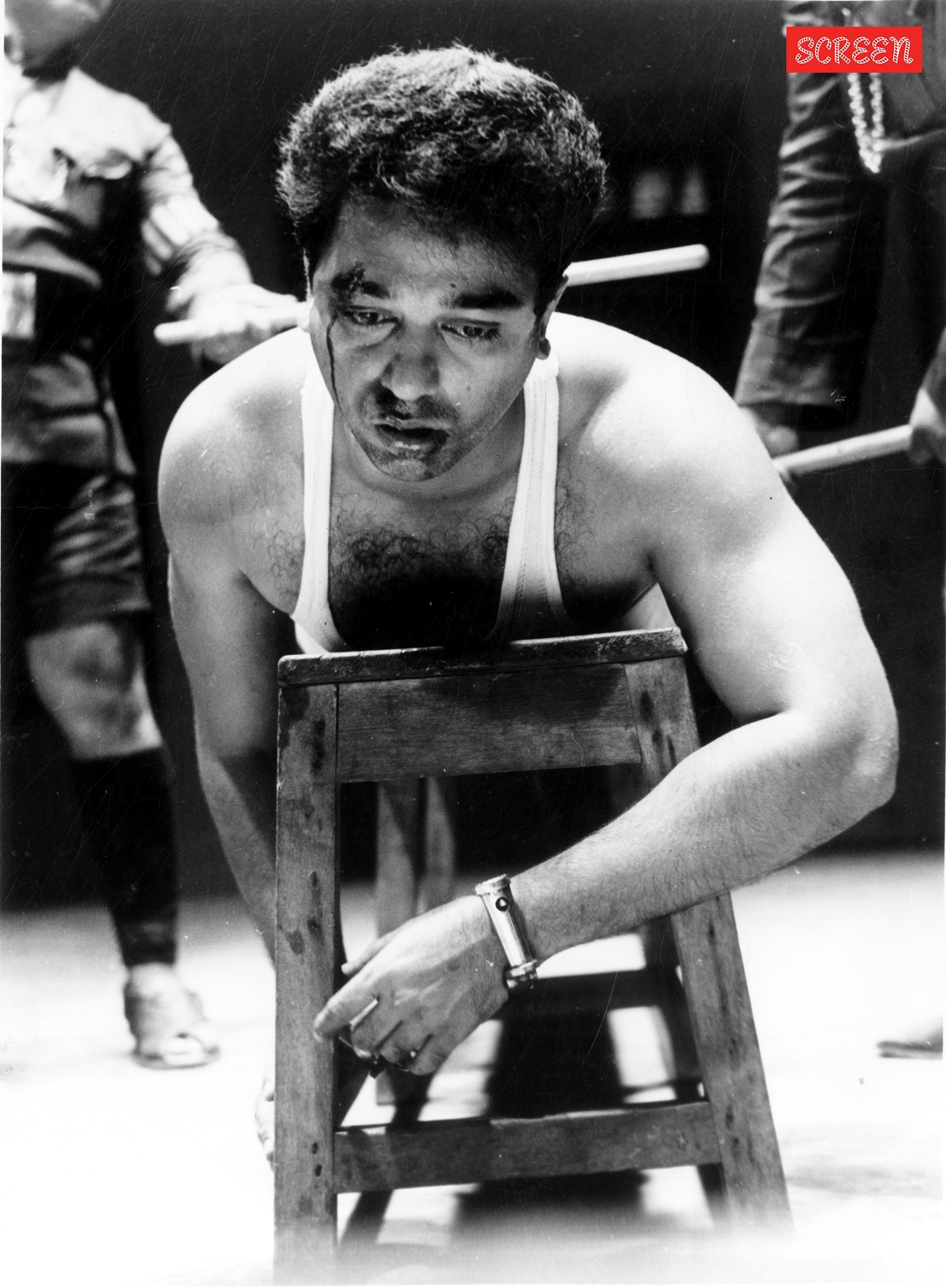 One of the biggest shortcomings of Nayakan is its overt and unabashed obsession with Kamal Haasan. (Express archive photo)
One of the biggest shortcomings of Nayakan is its overt and unabashed obsession with Kamal Haasan. (Express archive photo)
By the time he made Thalapathi (1991), Mani had developed a better grip on this balance. The script for Thalapathi reflected his significant growth as a writer, weaving together diverse elements that connected meaningfully to the film’s core, which was not Rajinikanth the star-actor. However, in Nayakan, Kamal is the film’s soul, the air it breathes and its all-encompassing lordship. While Mani did manage to draw exceptional work from all involved, particularly Kamal, composer Ilaiyaraaja, cinematographer PC Sreeram and editors B Lenin and VT Vijayan, the film ultimately revolves around the actor and his exceptional skill set, especially his ability to emote through facial expressions and body language.
Story continues below this ad
Even before Velu becomes Nayakkar of Dharavi — while he is still just a boy who fled his hometown of Thoothukudi after stabbing a police officer who murdered his union-leader father — Nayakan’s focus is singularly on him. After the film opens with the murder of Velu’s father and his escape to Mumbai, and once the young Velu appears, the film’s fixation on Kamal begins immediately. It doesn’t spend time offering exposition about young Velu; instead, it jumps straight into showcasing Kamal’s acting prowess. From the moment he is arrested by the police for ‘acting smart’ during a forced eviction in the slums, the camera and script begin to serve the actor’s range more than the character as such. Mani Ratnam crafted each shot from this point onwards to highlight the actor’s many strengths, even if that meant compromising the script by making everything be about Kamal and not Velu.
 Mani Ratnam with Kamal Hasan, cinematographer PC Sreeram and others on the sets of Nayakan. (Express archive photo)
Mani Ratnam with Kamal Hasan, cinematographer PC Sreeram and others on the sets of Nayakan. (Express archive photo)
While the film features a handful of characters here — some named, most not — they are only relevant when in relation to Velu. They lack agency or defined identities when not in his orbit. Even as the movie progresses and we see Velu becoming Dharavi’s Nayakkar — inspired by real-life Mumbai mafia don Varadarajan Mudaliar — saving the people, Nayakan doesn’t care much to actually show who these people are. They all end up serving merely as contributors to his evolving character arc. The savarna saviour complex here is so pronounced that only the saviour occupies the foreground, while those Mani Ratnam deems in need of saving — members of oppressed communities — are, as usual, relegated to the background, appearing only as part of crowds.
Even characters who have names and belong to Dharavi, such as Hussain (MV Vasudeva Rao), the man who raised Velu and meets a tragic end, his daughter Shakila (Tara), and Velu’s friend Selvam (Janagaraj), exist solely through their connection to Velu. Although Selvam is almost always by the “hero’s” side and is the only one who has the guts to call him “Velu” to his face even after he became Nayakkar, he, too, is just a background character with no story of his own. Despite Dharavi having enough people, we also see one “Iyer” (Delhi Ganesh) appearing out of nowhere and becoming Velu/Nayakkar’s source of knowledge.
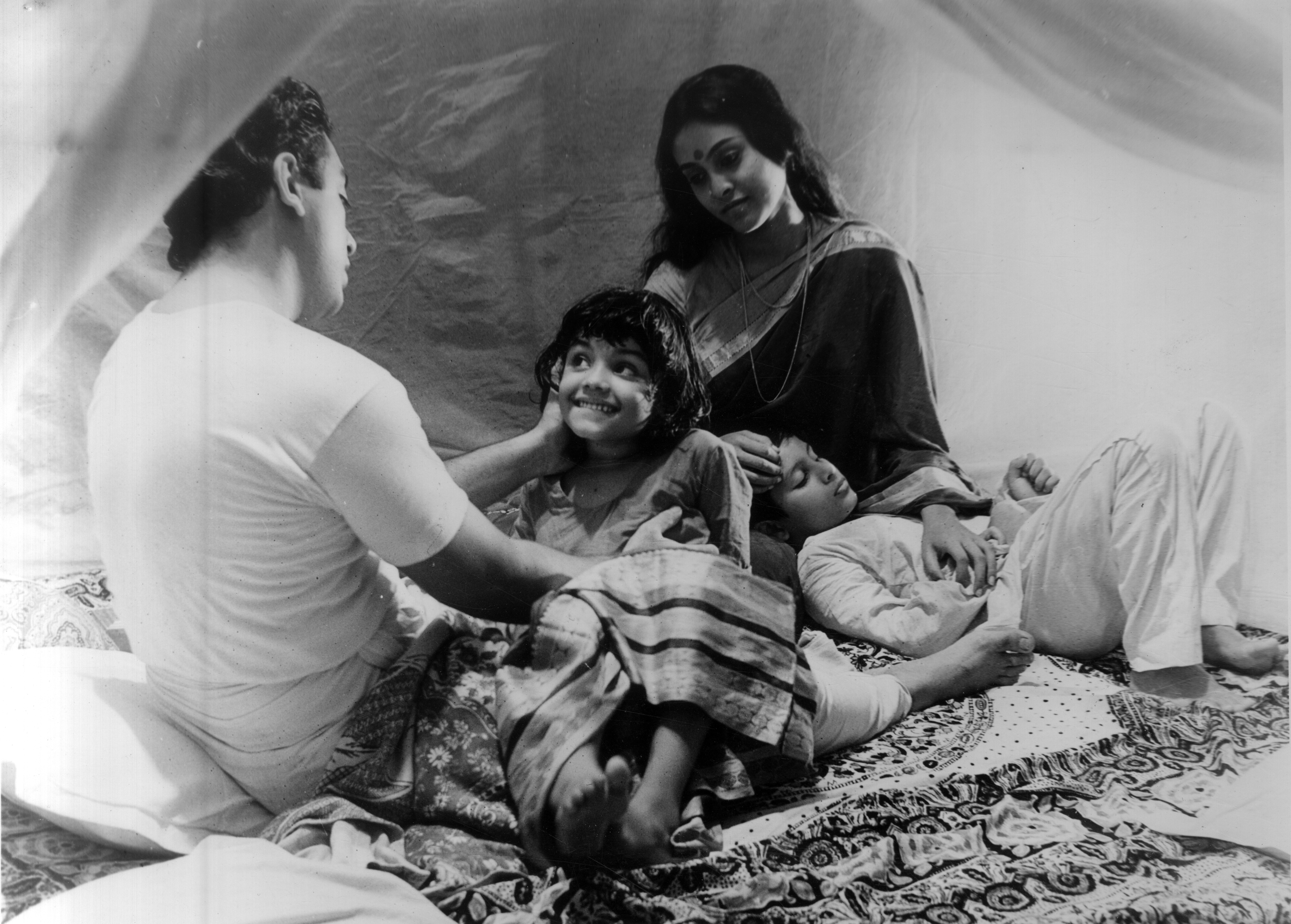 Kamal Haasan and Saranya Ponvannan in Nayakan. (Express archive photo)
Kamal Haasan and Saranya Ponvannan in Nayakan. (Express archive photo)
Once Velu becomes “the chosen one” (self-appointed by the way; no one voted), Mani also cleverly overlooks Velu’s illegal businesses, despite the clear historical knowledge that while the dominant caste people may run the operations, it is the marginalised who will ultimately bear the consequences (and they do as well in Nayakan, time and again). “Naalu perukku udhavumna, edhuvume paavamille (If it helps four people, there’s no sin in it)” is the line he keeps repeating. But when the situation demands, he is financially secure enough to send his children, Charumati (Karthika) and Surya (Nizhalgal Ravi), to Madras for safety. What about those without names, identities or financial backing? What about the rest of Dharavi? Nayakan simply doesn’t care.
Story continues below this ad
Though he is positioned as a saviour, the ‘celebration’ of which happens in the scene where he refuses to sleep with the underage sex worker Neela (Saranya Ponvannan) after learning she has an exam the next day and wants to study, is he truly one even for his dear ones? Despite knowing her aspirations, Velu soon chains her with a thaali (mangalsutra) without her consent. She lived the rest of her life as a housewife before ultimately being killed by her husband’s enemies.
Even later, when Charumati questions his system of running a parallel government, Nayakkar insists that he can’t stop since he never chose this life of his own free will. “Are we doing all this because we actually want to? We have no other option, dear,” he tells her. But didn’t he? Despite wielding enormous influence, political connections and wealth, we never see him attempting to uplift the broader living conditions of Dharavi’s marginalised population, which would have allowed him as well to slowly give up everything.
“I’ll buy five ambulances for Dharavi. They won’t ply for the rich, only for the poor,” he says at one point. But even after this, we never see Nayakkar stepping back to reflect on or challenge the deeper social stigma against the people of Dharavi. Instead, he grows wealthier by the day, while the marginalised remain his loyal foot soldiers, ever ready to lay down their lives for his protection (they literally do this as well towards the end). So, is there really any doubt left about whether he’s a good person or a bad one?
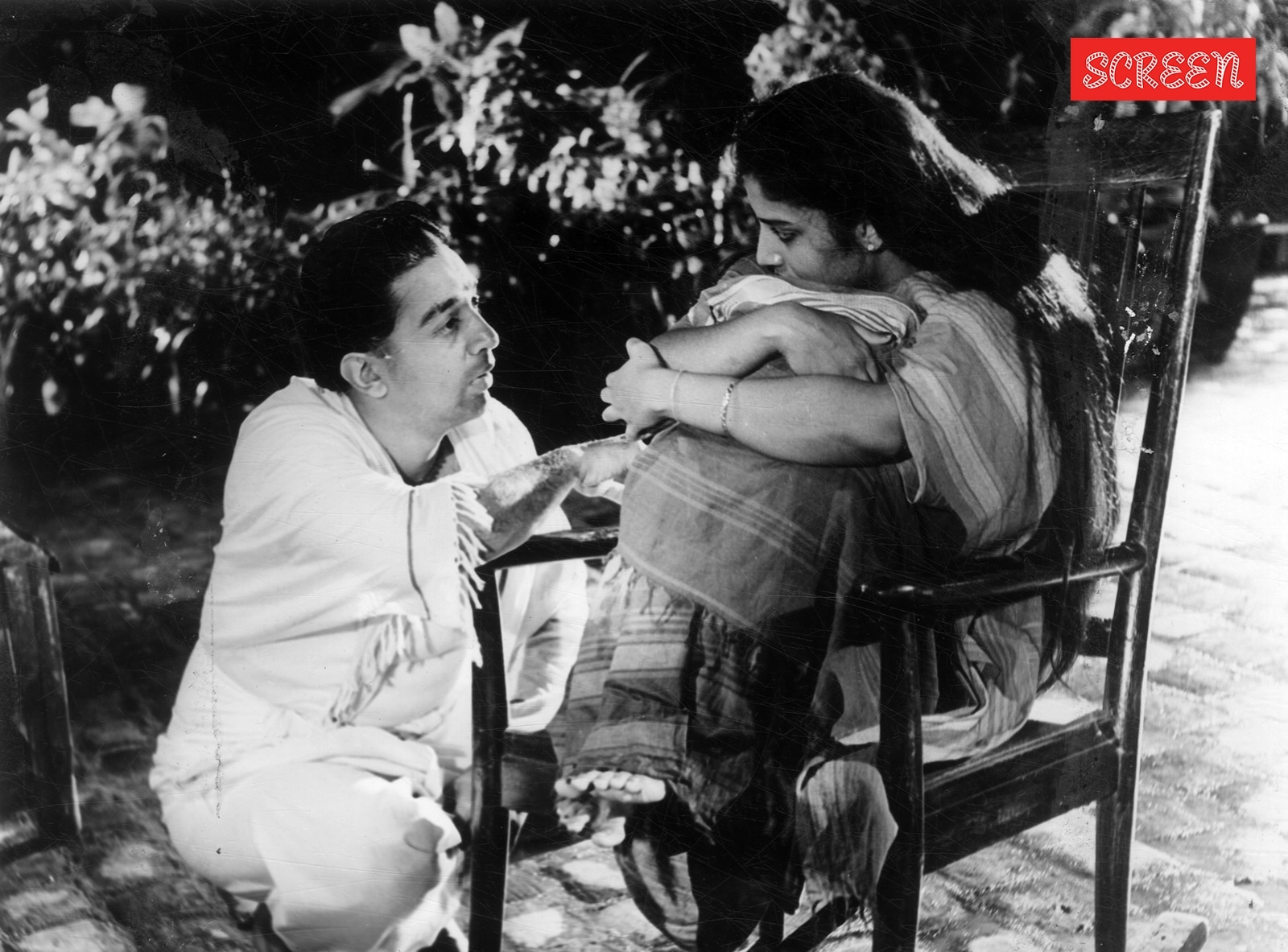 Kamal Haasan and Karthika in Nayakan. (Express archive photo)
Kamal Haasan and Karthika in Nayakan. (Express archive photo)
While Nayakan presents one of its central themes, “he who lives by the sword shall perish by the sword”, through Velu’s gradual downfall, including the loss of his son Surya as well following his wife’s murder, Charumati leaving him, and his eventual death on the street after being shot by Inspector Kelkar’s son Ajit (Tinnu Anand) whom Velu had been raising ever since he killed Kelkar himself, another question arises: Was the overt humanisation of a man involved in numerous illegal activities really necessary?
Story continues below this ad
Although Francis Ford Coppola’s The Godfather (1972), based on Mario Puzo’s novel and an inspiration for Nayakan, also delved into the inner world of mafia bosses, particularly their interpersonal relationships, it did not overtly humanise them. Their moral ambiguity remained intact and unsoftened. However, in Nayakan, partly because the role was played by Kamal Haasan and partly due to the Indian audience’s penchant for melodrama and hero worship, Mani Ratnam un/knowingly infused the character with such a level of drama and cues to make the audience subconsciously perceive Nayakkar as the hero.
Circling back to the intro, I wouldn’t call Nayakan “peak cinema”. Pandering to a largely savarna audience, who made up the lion’s share of the movie-going public at the time since watching new releases regularly was a luxury only the privileged could afford, and to “Aandavar” fans does not inherently make a film great. At the same time, completely disregarding the masses among whom the story is set is nothing short of ignorance. And no, the film hasn’t aged particularly well.
That said, Nayakan is undoubtedly a good film, where the blending of words and visuals happens organically and beautifully, with Ilaiyaraaja’s music, as always, elevating the entire experience. One of the strongest aspects of Mani Ratnam’s script is how efficiently it omits the unnecessary and includes only what is needed to deliver the filmmaker’s vision; unlike the current trend of overwriting and over-filming and mindlessly splitting a movie into multiple parts.
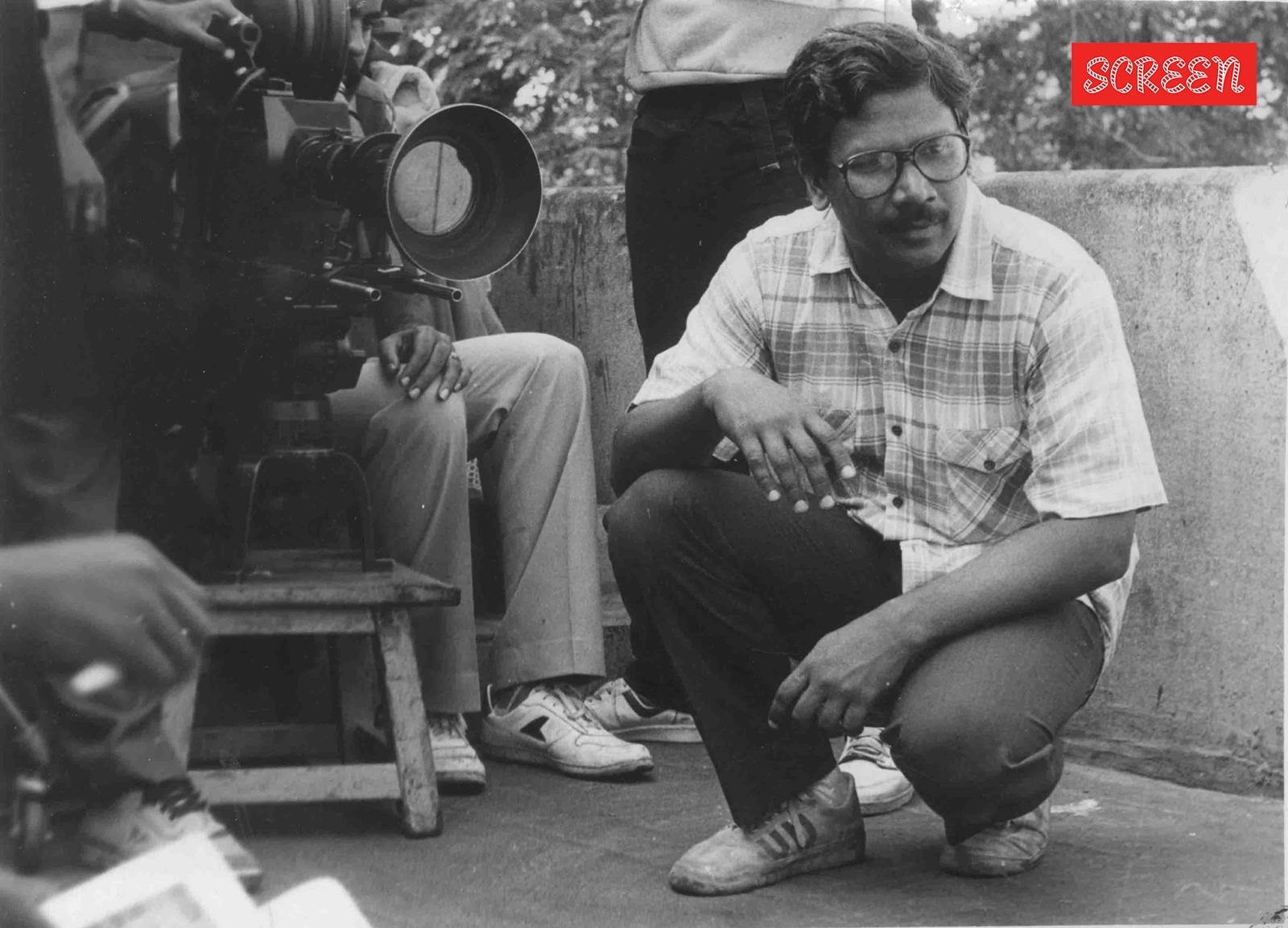 Mani Ratnam on the sets of Nayakan. (Express archive photo)
Mani Ratnam on the sets of Nayakan. (Express archive photo)
Kamal Haasan’s performance is undoubtedly exceptional, so much so that it has helped mask many of the film’s flaws over the years, leading audiences to blindly believe that Nayakan is “the one”. He won his second National Film Award for Best Actor for his performance here. Nonetheless, Nayakan proves that just because a movie is good, it doesn’t mean it’s great or free of flaws. And it’s important to analyse cinema critically — to call a spade a spade — and point out its shortcomings and misrepresentations. After all…
Story continues below this ad
Cinema cannot exist in a vacuum; it’s all about the discussions that follow. In the Cinema Anatomy column, we delve into the diverse layers and dimensions of films, aiming to uncover deeper meanings and foster continuous discourses.






